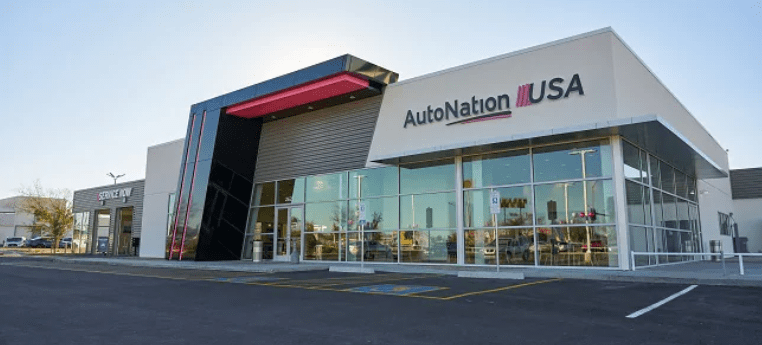On July 19th, AutoNation released their Q2 net income from continuing operations that set an all-time earnings record for the fifth straight quarter. As the largest American automotive dealer group, their net income achieved $385 million and an adjusted EPS of $4.83, representing an increase of 243% above the same period last year.
Compared to Q2 2020, AutoNation’s revenue grew by 54% to $7 billion on a same-store basis. Even taking out the pandemic anomaly of 2020, earnings are 33% higher than Q2 2019. All aspects of the group’s business experienced not just growth, but profitability.
Record new car sales
For AutoNation’s franchised stores, business through the second quarter was phenomenal on new cars. They achieved 42% more deliveries than Q2 2020 – during the worst of the pandemic – and 12% more than the incredibly strong performance seen in Q2 2019 on same-store new vehicle unit sales.
While new car sales are at their best ever, inventory levels have not been able to keep pace. New vehicle shipments have slipped by 6% from 2019 and, because of the manufacturing challenges seen industry-wide, demand for new units on the ground is even higher. The group expects that demand will continue to exceed supply into the new year.
AutoNation CEO Mike Jackson said in the Q2 earnings call, “The COVID-19 pandemic caused a dramatic shift in consumers’ spending priorities. They want bigger homes and the safety and convenience of personal transportation. Coupled with low-interest rates, this strong vehicle demand has led to faster inventory turnover, and consumers are buying vehicles before they even arrive at our stores. We expect the current environment of demand exceeding supply to continue into 2022.”
The push for pre-owned
Used car sales have nearly kept pace with new vehicles for year-over-year growth. Same-store pre-owned sales grew by 37% over Q2 2020 and 32% over Q2 2019. Like new car inventory, pre-owned vehicles have been harder to secure than normal for most retailers in the industry, but AutoNation has claimed an advantage.
Jackson says, “With consumer demand high for personal transportation, we’ve aggressively moved to increase our availability of pre-owned vehicles. Nearly 90% of pre-owned vehicles retailed in the second quarter were self-sourced. Self-sourcing is a core capability and competitive advantage for AutoNation.
“Our proven acquisition strategy, successful We’ll Buy Your Car program, digital tools, and operational execution allow us to source attractive inventory, drive Used vehicle sales, and deliver a peerless customer experience. AutoNation’s same-store pre-owned units were up 37% year-over-year and up 32% compared to 2019.”
Now with six AutoNation USA pre-owned stores, the group has emphasized the importance of used cars in profitability, especially in the interim while dismal new car inventory leaves gaping holes on dealers’ lots nationwide.
Growth strategy continues
The sixth AutoNation USA location opened in May this year, mid-quarter. The newest location is in San Antonio, TX, and joins the five other locations in Henderson, NV, Phoenix, AZ, and three other Texas locations – one in Corpus Christi and two in Houston. Jackson mentioned in the earnings call that in the San Antonio store’s first full month, it turned a profit.
AutoNation has plans to open four more AutoNation USA used locations in the back half of this year. By 2022, it’s expected they’ll open another 12 locations while targeting a total of 130 storefronts by the end of 2026.
Additional results posted by AutoNation
Segmented, the quarter’s results offer a glimpse into AutoNation’s success. Domestic segment income was 106% higher than Q2 2020 while import segment income was 131% higher. Premium luxury segment income grew by 153% over Q2 last year.
Net income through the first half of this year is reported at $624 million compared to $48 million in the previous year.
AutoNation also repurchased 7.5 million shares – 9% of common stock – through the second quarter, adding to the 6% purchased in Q1.
The nation’s largest dealer group reported $1.6 billion in liquidity as of June 30 including $60 million in cash.
Did you enjoy this article from Jason Unrau? Please share your thoughts, comments, or questions regarding this topic by submitting a letter to the editor here, or connect with us at newsroom@cbtnews.com.
Be sure to follow us on Facebook and Twitter to stay up to date or catch-up on all of our podcasts on demand.
While you’re here, don’t forget to subscribe to our email newsletter for all the latest auto industry news from CBT News.










